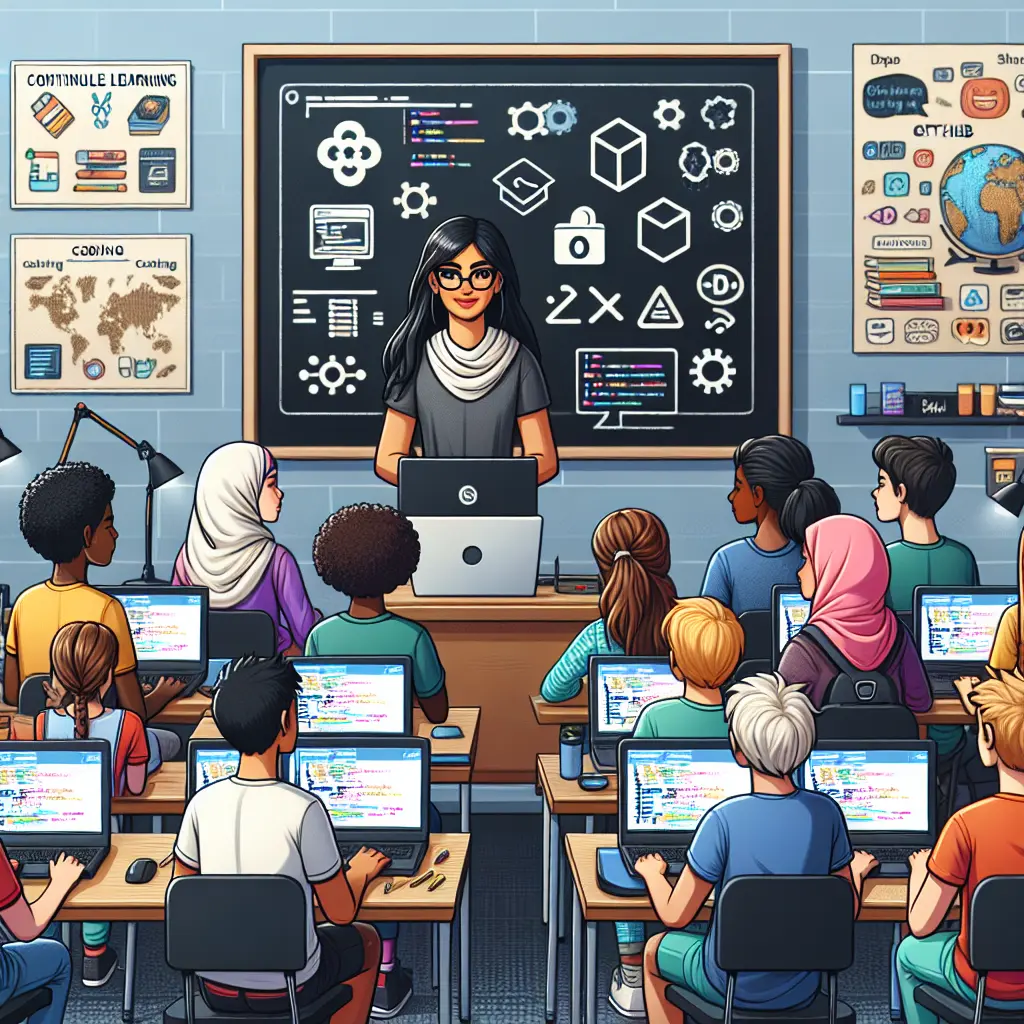In the rapidly evolving landscape of education and skill development, open source software emerges as a game-changer, transforming traditional methods of learning. By embracing open source projects, educators and students gain access to a wealth of resources that not only enhance learning experiences but also provide practical, hands-on skills essential for the digital age. The integration of open source software in education is reshaping how knowledge is imparted, fostering a community-driven learning approach where collaboration and innovation thrive. This is particularly evident in fields like media studies, where open source platforms offer unique opportunities for skill enhancement through real-world applications.
Educational open source software empowers educators to create dynamic curricula tailored to current industry needs. This flexibility is crucial for developing skills with open source projects that prepare learners for the demands of the modern workforce. As open source tools for learning become more prevalent, they bridge the gap between theoretical concepts and practical application, facilitating skill development with open source methodologies. The benefits of open source in education extend beyond cost-effectiveness; they nurture an environment of experimentation and creativity, essential for media and open source collaboration.
Using open source for skills training not only democratizes education but also equips learners with the tools needed for media skills development. Open source software for educators acts as a catalyst in this transformative journey, promoting project-based learning that mirrors real-world challenges. As institutions increasingly integrate open source in curriculum design, the impact of open source on education becomes more pronounced, offering a sustainable path to skill enhancement. With these foundations laid, exploring the educational benefits of open source projects reveals their potential to revolutionize learning paradigms and prepare individuals for future challenges.
In the dynamic field of education, open source software has emerged as a pivotal element in reshaping traditional learning methodologies. This shift towards open source is not merely about reducing costs but is a strategic move towards enhancing skill development with open source tools and methodologies. Open source software in education provides educators with the flexibility to tailor curricula to meet current industry standards, thereby ensuring that learners acquire relevant and practical skills.
Open source software acts as a catalyst for innovation in educational settings. For example, platforms like Moodle and Open edX have revolutionized the way courses are delivered online, offering customizable and scalable solutions that facilitate a more interactive learning environment. These platforms empower educators to design courses that encourage active participation and collaborative learning, which are essential components of skill enhancement through open source methodologies. The integration of open source tools in digital media education, for instance, allows students to engage with real-world projects, fostering media skills development.
Benefits of Open Source in Skill Development
The benefits of open source in education extend far beyond financial savings. They include the development of a community-driven learning environment where collaboration and shared knowledge are at the forefront. This approach is particularly beneficial in fields like media studies, where open source projects provide students with opportunities to work on real-life applications, thereby bridging the gap between theoretical knowledge and practical skills. The Android-based open-source closed-loop system used by adults with type 1 diabetes in China exemplifies how open source platforms can be adapted for educational purposes, providing hands-on experience with cutting-edge technology.
Open source tools for learning, such as the Red Pitaya board highlighted in Geeky Gadgets, offer students practical exposure to electronics and signal analysis. This tool, integrating FPGA and a dual-core ARM Cortex-A9 processor, allows learners to engage in hands-on projects that mirror industry challenges, thereby enhancing their problem-solving skills. Such tools are instrumental in developing skills with open source projects and preparing students for technical roles in the workforce.
The community aspect of open source projects plays a critical role in skill development. Platforms like GitHub host numerous open source projects that encourage learners to contribute, collaborate, and innovate. This community-driven approach not only enhances technical skills but also fosters soft skills such as teamwork and communication. The study on fintech adoption illustrates how open source methodologies can be applied to understand complex systems, enabling learners to adapt to rapidly changing technological landscapes.
Educational open source software is pivotal in project-based learning environments. Institutions integrating open source into their curriculum provide students with a robust framework for tackling real-world problems. This approach aligns with the current trends of personalized and adaptive learning models, ensuring that education is not only relevant but also impactful. The research on healthcare workers managing snakebite envenoming demonstrates how specific training needs can be addressed through open source tools, enhancing both knowledge and practice.
Impact of Open Source on Media Studies
In media studies, the integration of open source software offers unique opportunities for media skills development. Tools like GIMP and Blender provide students with access to professional-grade software without the financial burden associated with proprietary licenses. This democratization of resources enables students from diverse backgrounds to engage in creative and innovative projects, contributing to a richer educational experience.
Open source platforms are integral to skills training programs that align with industry demands. They provide learners with access to resources that enhance their technical competencies and prepare them for future challenges. The ELSA Speak study highlights how open source applications can be used effectively in language learning, demonstrating the versatility of open source tools across different educational contexts.
The role of open source software in education and skill development cannot be overstated. By providing access to flexible and adaptable resources, open source projects enable educators and students to engage in meaningful learning experiences that bridge the gap between academia and industry. The continuous evolution of these tools promises a future where education is more accessible, equitable, and innovative, setting a new standard for how we approach learning in the digital age.
The integration of open source software in education has proven to be a transformative force, providing substantial benefits in skill development and learning methodologies.
- Innovation in Education: Platforms like Moodle and Open edX have reshaped online learning environments, encouraging active participation and collaboration.
- Skill Development: Open source tools enable real-world project engagement, bridging the gap between theoretical knowledge and practical skills.
- Community-Driven Learning: Platforms such as GitHub foster a collaborative learning environment that enhances both technical and soft skills.
- Accessible Resources: Tools like GIMP and Blender democratize media studies, providing access to professional-grade software without financial barriers.
- Industry Alignment: Open source platforms align educational programs with industry demands, ensuring learners are well-prepared for future challenges.






Leave a Comment